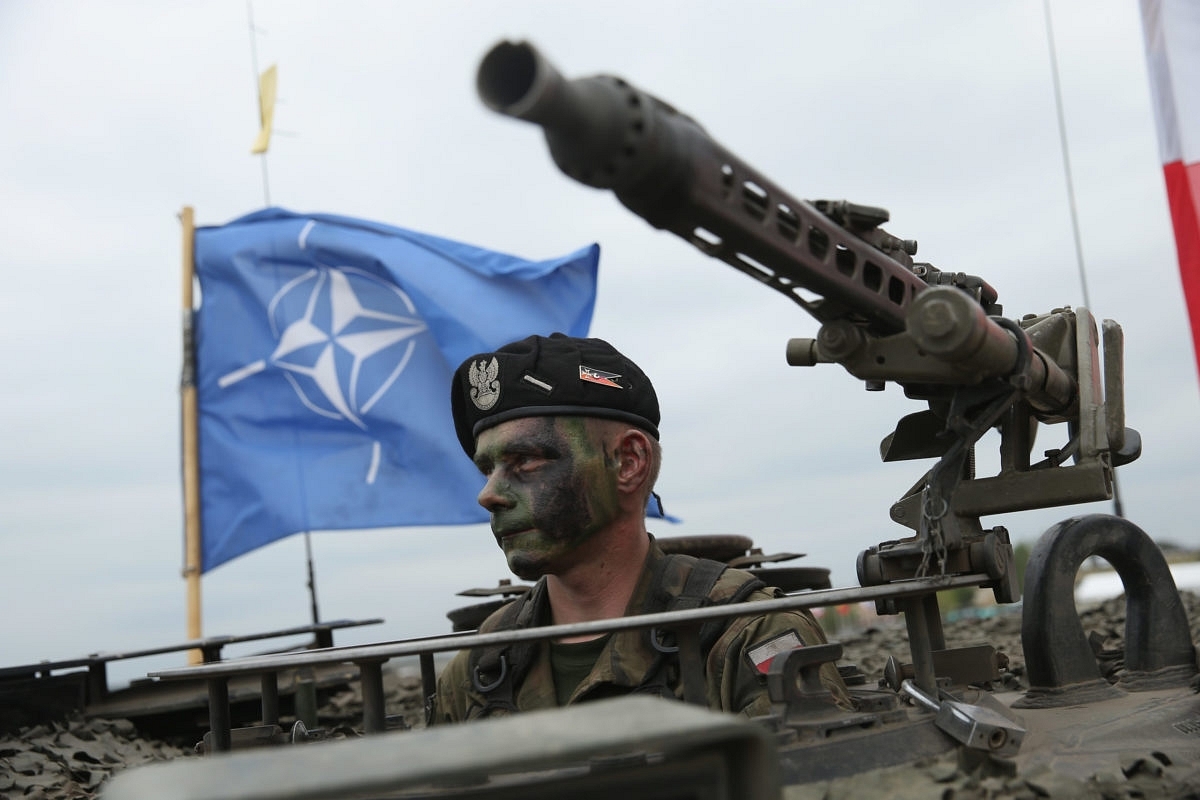World
Will Turkey Block Finland And Sweden's NATO Bid?
- Sweden and Finland need Turkey's support to ensure they are successful in their bid for NATO membership.

NATO
Hours after Finland and Sweden said they will seek membership of North Atlantic Treaty Organization (NATO), Turkey's President Recep Tayyip Erdogan stated that he opposes the membership bid by the two Nordic countries.
If Finland and Sweden don't secure the support of all NATO members, they will not be able to join NATO.
There must be a unanimous support and agreement on the inclusion of a new country into the military alliance. This is why Sweden and Finland need Turkey's support to ensure they are successful in their bid for NATO membership.
Erdogan has said that he opposes the membership bid of these two countries because of their willingness to host Kurdish 'militants'.
"Neither of these countries have a clear, open attitude towards terrorist organisation. How can we trust them?" said Erdogan while addressing a press conference yesterday (16 May).
He also added that Finland and Sweden should not bother sending their delegation to Ankara (Turkey's capital) to persuade Turkey. Kurds, a large minority, have been persecuted by the Turkish state.
"Will they come to persuade us? Excuse us, but they shouldn't bother," he said.
Turkey claims that the two Nordic countries hosted members of Kurdistan Workers' Party (PKK), which it perceives a terrorist organisation.
Sweden and Finland have granted refuge to members of PKK, a group that seeks an autonomous region for Kurds inside Turkey. Turkey, the United States and the European Union have labelled the group for decades as a terrorist organisation.
It is worth remembering that YPG, which is a branch of PKK, played a significant role in defeating terror outfit Islamic State.
According to the official Turkish news agency, both Finland and Sweden have rejected dozens of requests to extradite Kurdish fighters who Turkey describes as terrorists.
This isn't the only reason behind Erdogan's stance.
Erdogan's government has also vowed to block NATO bid of those countries which have imposed sanctions on Turkey.
Both Finland and Sweden had imposed an arms embargo on Turkey in 2019 after the country's incursion into Syria.
"We will not say 'yes' to those who apply sanctions on Turkey," stated Erdogan at the press conference.
Addressing the Finnish Parliament yesterday (16 May), Foreign Minister Pekka Haavisto stated that he was 'surprised' by Turkey's stance.
Erdogan's stance may sour the already souring relationship between Washington and Ankara. Interestingly, 50 tactical nuclear weapons of US are believed to be based in Turkey's strategic Incirlik airbase.
Some US officials in recent years have already argued in favour of removing the nukes from Turkey due to the changing nature of relationship between Washington and Ankara, which has increasingly come under strain since Erdogan took office.
Turkey's purchase of S-400 air defence system from Russia resulted in Turkey being kicked out from US' F-35 programme.
Analysts have viewed Turkey's relationship with Russia as a potential source of further divergence between US and Turkey. During the Ukraine conflict, Turkey has attempted to balance its relationship with the US and Russia.
It refused to join sanctions against Moscow but supported Kyiv with supply of weapons, in particular its Bayraktar drones, which according to some assessments of the ongoing war have helped Ukraine significantly.
On Wednesday, US Secretary of State, Anthony Blinken is scheduled to hold a meeting with his Turkish counterpart. This issue will certainly dominate the discussions between the two sides.
According to analysts, further expansion of NATO after the Russo-Ukrainian war is viewed by Washington as a key strategic victory. It undermines Moscow's rationale for the war.
If stopping NATO's expansion was Moscow's goal, invasion of Ukraine may prove to be counterproductive — Finland and Sweden are closer to joining the alliance than they have been in the last few decades.
It is very unlikely that Washington will allow such an opportunity to slip. Analysts believe the US will do everything it can to ensure that attainment of a key strategic advantage isn't jeopardised by Turkey.
Moscow will be hoping that Turkey succeeds, which is highly unlikely. According to analysts, Turkey's stance is at best an attempt at securing some concessions from the two Nordic countries and the US.
These concessions might include a gradual easing of Stockholm's arms embargo and some actions to curtail PKK's ability to raise funds.
Ibrahim Kalin, Erdogan's primary foreign policy adviser, in an interview with Reuters stated that, "we are not closing the door (of NATO membership for Sweden and Finland). But we are basically raising this issue as a matter of national security for Turkey".
Domestic political necessities of Erdogan might be another variable in this equation. Turkey is reeling from the effects of soaring inflation. Inflation has touched 70 per cent in April, largely due to Erdogan's refusal to raise interest rates. High fuel and agricultural commodity prices aren't helping.
The president's domestic popularity also appears to have taken a hit. It isn't hard to fathom why, amidst such economic stress, railing against a separatist organisation (PKK) and Western double standards, appears appealing to Erdogan. Some analysts believe that any concessions he does secure, will be viewed as 'victory' in Turkey and help him domestically.
NATO, meanwhile, is carrying out one of its biggest exercises in the Baltic region. It is named "Hedgehog" and it involves 10 countries, including Finland and Sweden.
Introducing ElectionsHQ + 50 Ground Reports Project
The 2024 elections might seem easy to guess, but there are some important questions that shouldn't be missed.
Do freebies still sway voters? Do people prioritise infrastructure when voting? How will Punjab vote?
The answers to these questions provide great insights into where we, as a country, are headed in the years to come.
Swarajya is starting a project with an aim to do 50 solid ground stories and a smart commentary service on WhatsApp, a one-of-a-kind. We'd love your support during this election season.
Click below to contribute.
Latest